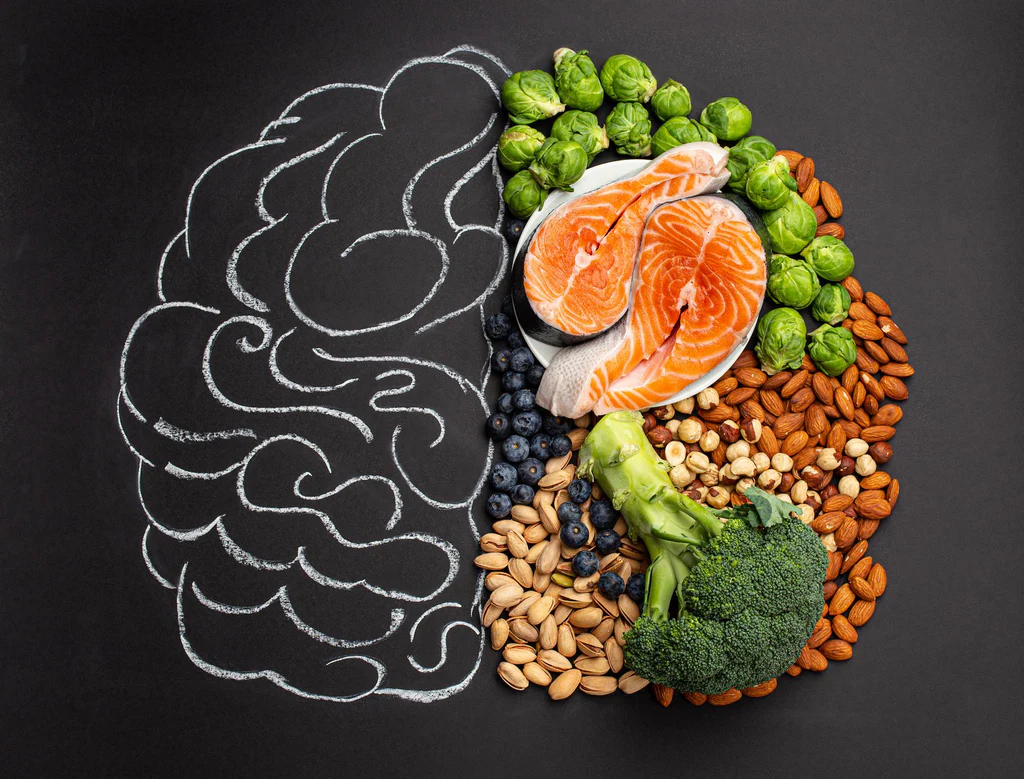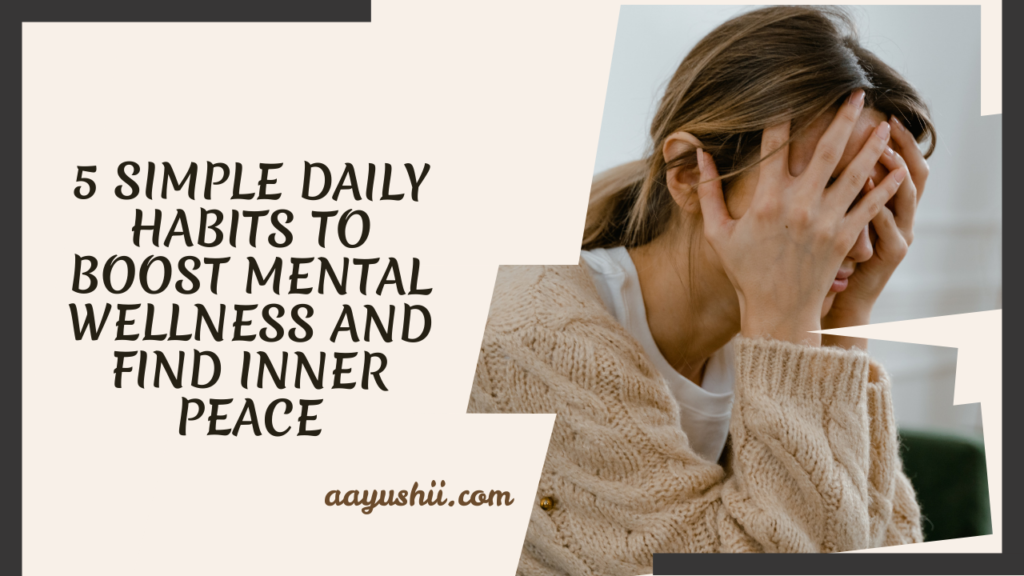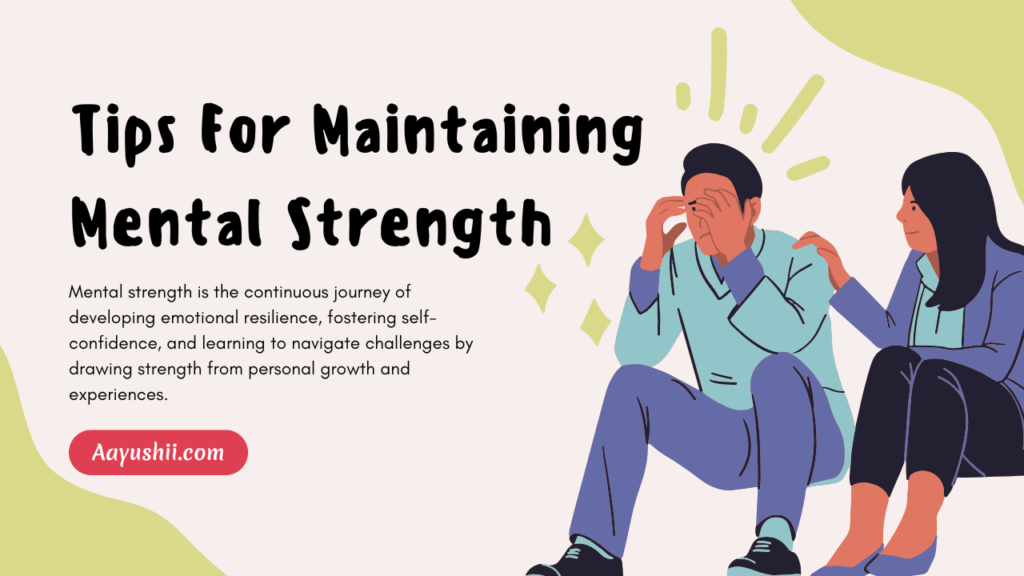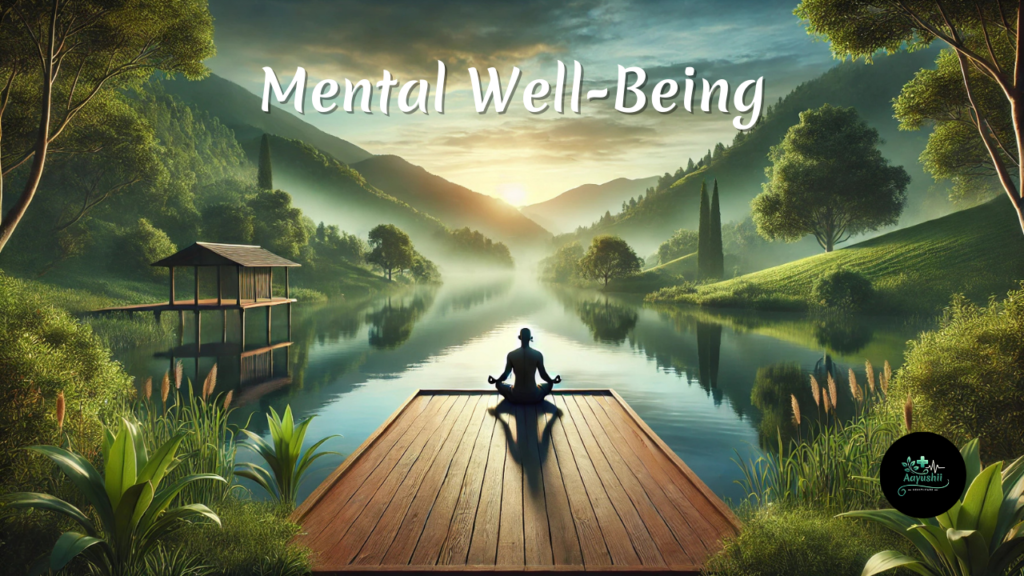Mental wellness often takes a backseat in a world where the days blur into a whirlwind of deadlines and demands. Yet, amid the hustle, cultivating a calm and peaceful mind is the key to unlocking your full potential. The best part? Achieving mental well-being doesn’t require a dramatic lifestyle change. You can transform your mental health and embrace a life of clarity and inner peace by weaving a few simple, science-backed habits into your daily routine.
This article delves deep into five daily habits supported by scientific research that can help you boost your mental wellness and create a life filled with balance and tranquility.
1. Start Your Day with Mindful Meditation

Mindful meditation has been practiced for centuries, and modern research confirms its incredible benefits for mental health. This practice helps you ground yourself in the present moment, reducing stress, enhancing emotional control, and improving your overall outlook on life.
Why Mindful Meditation Works
Scientific studies show that meditation physically changes the brain. Research published in Frontiers in Psychology found that consistent mindfulness meditation increases gray matter density in the hippocampus (which is involved in memory and emotional regulation) and decreases activity in the amygdala (the brain’s fear center). This dual effect enhances your ability to handle stress and promotes emotional resilience.
How to Get Started
- Dedicate 10-20 minutes each morning to meditation.
- Sit in a comfortable position, close your eyes, and focus on your breath. Each time your mind wanders, gently bring it back to your breathing.
- Use guided meditation apps, YouTube videos, or calming music to assist you.
Additional Tips:
- If sitting still feels challenging, try “walking meditation,” where you focus on the sensation of each step.
- Gradually increase your meditation time as you become more comfortable with the practice.
The Results: Within weeks, you’ll likely notice reduced anxiety levels, better focus, and an improved sense of inner calm.
2. Engage in Regular Physical Activity

Exercise is often touted for its physical benefits, but its impact on mental health is equally profound. Whether it’s a brisk walk, yoga, or high-intensity training, physical activity releases chemicals in the brain that boost mood and relieve stress.
The Science of Exercise and Mental Health
Research from Harvard Medical School shows that exercise triggers the release of endorphins, dopamine, and serotonin—neurochemicals that combat stress and promote feelings of happiness. Regular exercise also reduces levels of cortisol, the hormone responsible for stress, and enhances neurogenesis (the growth of new brain cells).
Easy Ways to Incorporate Exercise into Your Day
- Morning Movement: Start your day with stretches, a quick yoga session, or a light jog to awaken your body and mind.
- Active Breaks: Take 5-10 minute breaks during your workday to do jumping jacks, squats, or even just walk around.
- Evening Relaxation: Engage in calming activities like tai chi, which combines gentle movements with mindfulness to promote relaxation.
The Results: People who exercise regularly experience reduced symptoms of depression and anxiety, improved focus, and enhanced self-esteem.
3. Fuel Your Brain with Nutritious Food

What you put on your plate has a direct impact on your mental health. A growing body of research underscores the importance of nutrition for brain function and emotional well-being.
The Brain-Diet Connection
The gut and brain are connected through the gut-brain axis, a communication pathway influenced by the trillions of microorganisms in your digestive tract. When you consume a nutrient-rich diet, you support a healthy gut microbiome, which in turn positively affects brain health.
A study published in The Journal of Neuroscience found that a Mediterranean-style diet rich in fruits, vegetables, nuts, whole grains, and lean proteins is associated with lower rates of depression and anxiety. Additionally, omega-3 fatty acids in foods like salmon and walnuts play a key role in reducing inflammation and supporting neurotransmitter function.
Foods for Mental Wellness
- Leafy Greens: Rich in folate and magnesium, which help reduce stress.
- Berries: Packed with antioxidants that protect brain cells from damage.
- Fermented Foods: Yogurt, kimchi, and kefir support gut health and improve mood.
- Dark Chocolate: Contains flavonoids that boost cognitive function and enhance mood.
Foods to Avoid
- Excessive sugar, which can cause mood swings.
- Processed foods, which are linked to inflammation and higher rates of depression.
Additional Tip: Hydration is crucial! Dehydration can lead to fatigue and irritability, so aim for at least 8 glasses of water daily.
The Results: A nutrient-dense diet improves focus, energy levels, and emotional balance while reducing the risk of mental health disorders.
4. Practice Gratitude Journaling

Gratitude is a powerful emotion that can reframe your perspective and shift your focus from negativity to positivity. By consciously acknowledging the good in your life, you can cultivate a mindset of abundance and joy.
The Science of Gratitude
A study published in the journal Emotion found that individuals who wrote letters of gratitude experienced long-term improvements in their mental health. Gratitude activates regions of the brain associated with reward and promotes the release of dopamine and serotonin, two chemicals that enhance mood and reduce anxiety.
How to Start a Gratitude Practice
- Keep a notebook by your bedside. Each night, write down three things you’re grateful for.
- Be specific: Instead of writing “I’m grateful for my family,” note something like “I’m grateful for the delicious dinner my partner cooked tonight.”
- Include small moments, like a kind smile from a stranger or a beautiful sunset you noticed.
Deepening the Practice
- Reflect on past challenges and how they’ve contributed to your personal growth.
- Share your gratitude with others. For instance, thank a colleague or friend for their support.
The Results: Over time, gratitude journaling reduces stress, enhances resilience, and fosters a more positive outlook on life.
5. Prioritize High-Quality Sleep

Sleep is the foundation of mental wellness, yet many people overlook its importance. Poor sleep affects your mood, cognitive abilities, and stress tolerance. Prioritizing restorative sleep can dramatically improve your mental health.
The Science of Sleep
During sleep, your brain processes emotions, consolidates memories, and removes toxins through a system called the glymphatic system. A study published in Nature found that insufficient sleep increases activity in the amygdala, making you more reactive to negative stimuli.
Tips for Better Sleep
- Stick to a Schedule: Go to bed and wake up at the same time every day, even on weekends.
- Create a Sleep Sanctuary: Keep your bedroom dark, quiet, and cool.
- Limit Blue Light Exposure: Avoid screens for at least an hour before bed. Use blue light-blocking glasses if necessary.
- Wind Down: Develop a calming pre-sleep routine, such as reading, meditating, or sipping herbal tea.
Lifestyle Factors That Improve Sleep
- Avoid caffeine after 2 p.m., as it can interfere with sleep cycles.
- Exercise earlier in the day to promote deeper sleep at night.
- Consider using white noise machines or apps to block out disturbances.
The Results: A consistent sleep schedule enhances emotional regulation, reduces stress, and supports overall mental wellness.
Bonus Habit: Build Meaningful Social Connections

Humans are inherently social beings, and meaningful connections are vital for mental health. Engaging in nurturing relationships provides a sense of belonging, reduces feelings of isolation, and boosts overall happiness.
Science Speaks
According to a study in PLOS Medicine, strong social networks are associated with a 50% increase in longevity and lower rates of depression. Social interactions release oxytocin, a hormone that promotes trust and reduces stress.
How to Strengthen Social Bonds
- Reach Out: Make time for family and friends through calls, texts, or face-to-face meetups.
- Volunteer: Helping others not only strengthens your community but also gives you a sense of purpose.
- Join Groups: Participate in clubs, classes, or online communities that align with your interests.
The Results: Strong connections improve emotional resilience, self-esteem, and overall well-being.
Conclusion
Achieving mental wellness and inner peace is an ongoing journey, but small daily habits can lead to profound changes over time. By incorporating mindful meditation, regular exercise, a balanced diet, gratitude journaling, and quality sleep into your life, you can build a solid foundation for mental health. Remember, progress takes patience—commit to these habits, and the results will follow.
For more science-backed tips and resources, explore aayushii.com and empower yourself with the knowledge to thrive mentally and emotionally. Your journey to inner peace starts today!
FAQ: 5 Simple Daily Habits to Boost Mental Wellness and Find Inner Peace
Q1: Why is focusing on daily habits important for mental wellness?
Daily habits create a foundation for your overall well-being. Small, consistent actions build resilience, improve mental clarity, and reduce stress over time. By dedicating a few moments each day to these habits, you train your brain to prioritize positivity and balance, leading to lasting inner peace.
Q2: How long does it take to see results from these habits?
The impact varies from person to person, but most individuals notice improvements in mood, focus, and stress levels within a few weeks of consistent practice. Science shows that it takes about 21–66 days to form a new habit, so patience and persistence are key!
Q3: Are these habits backed by science?
Yes! Each habit is supported by research:
- Mindful breathing reduces cortisol levels and enhances emotional regulation.
- Physical activity boosts serotonin and dopamine, improving mood.
- Journaling strengthens self-awareness and cognitive function.
- Adequate sleep is vital for mental restoration and emotional stability.
- Gratitude practices activate neural pathways associated with happiness and well-being.
Q4: Can these habits fit into a busy lifestyle?
Absolutely! These habits are simple and adaptable. For instance:
- Practice mindful breathing for just 5 minutes.
- Walk during your lunch break or do a 10-minute home workout.
- Write three sentences in a gratitude journal before bed.
The key is consistency, even if the time commitment is minimal.
Q5: What if I miss a day? Will it ruin my progress?
Not at all! Building habits is about progress, not perfection. If you miss a day, simply pick up where you left off. The occasional lapse won’t undo your efforts as long as you maintain long-term commitment.
Q6: Can these habits replace professional mental health support?
While these habits can greatly improve mental well-being, they are not a substitute for professional help if you’re facing severe mental health challenges. It’s important to seek therapy or counseling when needed. These habits complement professional care by enhancing resilience and emotional balance.
Q7: How can I stay motivated to keep practicing these habits?
Here are a few tips:
- Start small to avoid feeling overwhelmed.
- Track your progress in a habit journal or app.
- Reward yourself for consistency.
- Partner with a friend or loved one for accountability.
- Focus on how these habits make you feel better over time.
Q8: Are these habits suitable for all ages?
Yes! These habits are beneficial for individuals of all ages, from teens to seniors. They can be tailored to fit different lifestyles and energy levels. For example, seniors might enjoy gentle stretching or a gratitude practice, while younger people might find digital journaling or brisk walks more engaging.
Q9: How does gratitude help with mental wellness?
Gratitude shifts your focus from what’s lacking to what you have, promoting a positive outlook on life. Neuroscience studies show that gratitude activates the brain’s reward system, boosting happiness and reducing anxiety. A simple daily practice, like listing three things you’re grateful for, can profoundly enhance your mental well-being.
Q10: What’s the best way to get started with these habits?
Begin with one habit that resonates with you the most. Gradually add more as you feel comfortable. For instance, start with 5 minutes of mindful breathing each morning. Once that feels natural, incorporate journaling or a short walk. Building habits slowly ensures they become a seamless part of your routine.
Q11: Can these habits help with work-related stress?
Definitely! These habits are highly effective in managing work stress. Mindful breathing calms the nervous system during high-pressure moments, while physical activity clears mental clutter. Gratitude and journaling offer perspective and help you process challenging situations. Together, these habits make you more resilient and focused at work.
Q12: How do I ensure these habits become a permanent part of my lifestyle?
- Set specific times for each habit to integrate them into your routine.
- Use reminders or alarms to stay consistent.
- Celebrate small wins to reinforce positive behavior.
- Reflect on the benefits you’ve experienced—this reinforces your motivation to continue.





